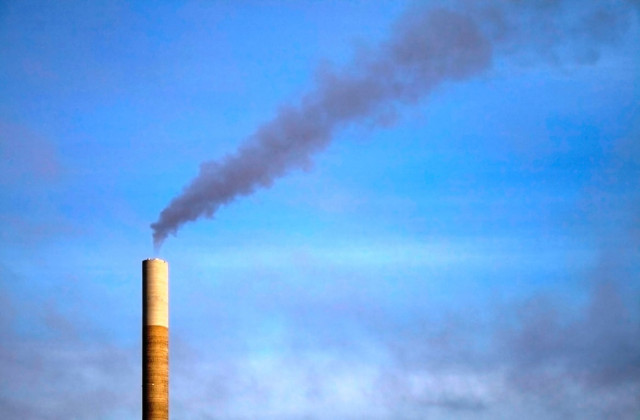Biggest spike ever in global warming gases: US
Large jumps in carbon emissions were visible in China.

Harmful carbon emissions from burning fossil fuels made their biggest ever annual jump in 2010, according to the US Department of Energy’s (DOE) latest world data released this week — with Pakistan witnessing a decline from 2009 to 2010.
China led the way with a spike of 212 million metric tonnes of carbon in 2010 over 2009, compared to 59 million metric tonnes more from the United States and 48 million metric tonnes more from India in the same period.
“It’s big,” Tom Boden, director of the Carbon Dioxide Information Analysis Centre Environmental Sciences Division at the DOE’s Oak Ridge National Laboratory in Tennessee, told AFP in an interview.
“Our data go back to 1751, even before the Industrial Revolution. Never before have we seen a 500-million-metric-tonne carbon increase in a single year,” he said.
The 512 million metric tonne boost amounted to a near six per cent rise between 2009 and 2010, going from 8.6 billion metric tonnes to 9.1 billion.
Large jumps in carbon emissions from burning coal and gas were visible in China, the United States and India, the world’s top three polluters, according to the data which was posted online this week by the Oak Ridge Lab.
Significant spikes were also seen in Saudi Arabia, Turkey, Russia, Poland and Kazakhstan.
Some countries, like Switzerland, Azerbaijan, Slovakia, Spain, New Zealand and Pakistan actually showed slight declines from 2009 to 2010, but those nations were uncommon. Much of Europe showed a moderate uptick.
The pollution measurements could indicate economic recovery from the global recession of 2007-2008, according to Boden.
“At least from an energy consumption standpoint, companies were back to manufacturing levels that rivalled pre-2008 levels, people were travelling again so emissions from the transportation sector rivalled those of pre-2008,” he said.
But the data also raised concerns about the health of the environment.
“This is very bad news,” said John Abraham, associate professor at the University of St Thomas School of Engineering in Minnesota.
“These results show that it will be harder to make the tough cuts to emissions if we are to head off a climate crisis.”
The data is derived from UN statistics gathered from every country in the world about fossil fuel energy stockpiles, imports, exports and production, as well as energy data compiled by oil giant British Petroleum.
Published in The Express Tribune, November 6th, 2011.



















COMMENTS
Comments are moderated and generally will be posted if they are on-topic and not abusive.
For more information, please see our Comments FAQ